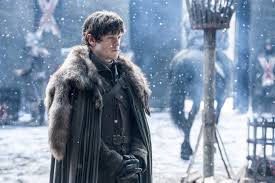An academic from the University of Sunderland is part of a team which will conduct a survey of the attitudes of fans of Game of Thrones.
The team wish to establish what makes such a gloomy and death-ridden show so culturally successful and important.
The research team – which includes the University of Sunderland’s Professor Clarissa Smith – have devised a questionnaire for Games of Thrones fans to complete.
They will analyse the results to try to form insights into why so many people love the show despite the fact that, in contrast to similar productions, its key characters keep getting killed off.
The team would also like to find out what annoys or upsets fans about the show.
The research team, which is completely independent of Game of Thrones author George RR Martin and programme creators HBO, will share their findings and conclusions once their study is complete.
Professor Smith said, “We’ve sensed that Game of Thrones is significant and important, a ‘game changer’, but we’re not sure how.”
“All of us have been involved in previous research projects of different kinds. Some of us researched responses to The Lord of the Rings and The Hobbit a couple of years back. That taught us a great deal. Some of us are researching the revived Star Wars franchise. But Game of Thrones is different, clearly.”

Many experts feel that, in recent years, the fantasy genre has changed considerably, with storylines becoming more complex and an increasing tendency to mix fantasy and science fiction.
Professor Clarissa Smith also points out that increased technical capabilities have made the worlds depicted in fantasy films and television programmes appear much more ‘real’.
Professor Smith said, “Now, with Game of Thrones, a new set of dimensions has been added. It’s not just that the book series is huge, and unfinished. What’s more important, perhaps, is that this is such a doom-filled series, where the moment you form affection for a character, he/she is likely to suffer horribly and die.”
“And, all the time, hanging over everything is the coming winter, the threat from the north, the White Walkers, all set in a world which is not ours, yet in a hundred ways reminds people of ours.”
“Please take twenty minutes to tell us your feelings about Game of Thrones and pass on the web address. We really do need thousands of people to do this.”
The team hope the questionnaire can help them understand how Game of Thrones finds its place among other fantasy stories and how people bond with the very different characters in the series and respond to their terrible fates.


The team are also interested in measuring responses to the controversies surrounding Game of Thrones, such as the differences between the books and TV programmes and how sex and sexual violence are portrayed in the series.
The questionnaire will be open until the end of series seven. After the questionnaire closes, the team will report back to the website with a summary of the results. Any individual responses shared will be anonymous.


Professor Smith said, “Clearly we want our research to contribute to academic knowledge about audiences and about fantasy. But our promise is that we will find as many ways as we can to make what we learn accessible and available back to the series’ audiences.”
“We will provide a digest of our most interesting findings to share with key websites and fan fora around the series.”
The questionnaire can be accessed at http://www.questeros.org/q.
Professor Clarissa Smith teaches on topics such as film and feminism, media consumption and everyday life, and representing sexualities. She is an associate director of the Centre for Media and Cultural Studies at the University of Sunderland.
















